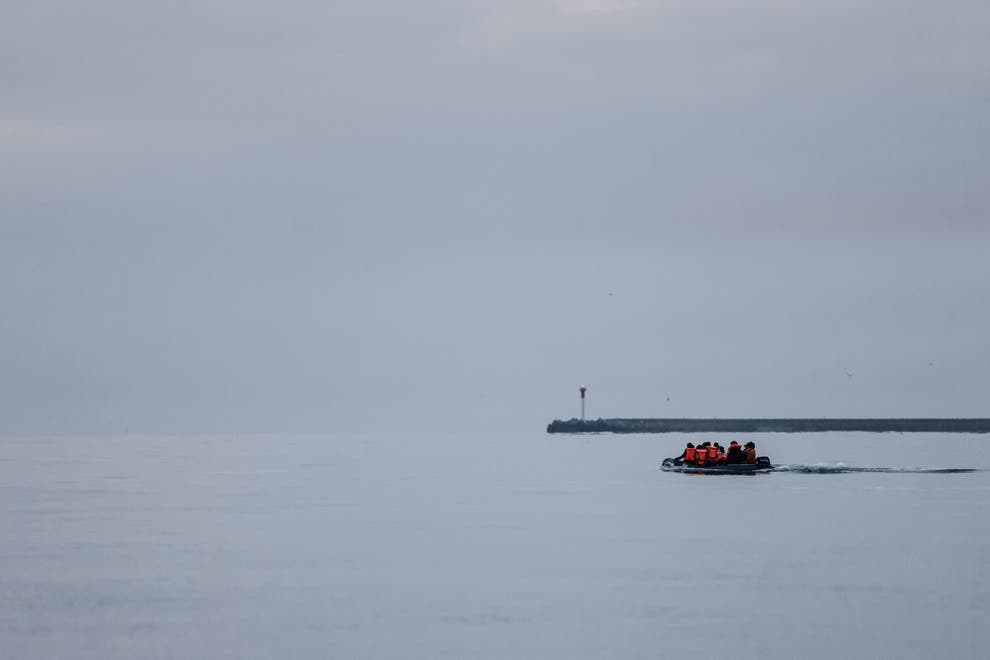Hundreds of asylum seekers in UK being considered for removal to EU – despite absence of returns deals
More than 1,500 people seeking protection in UK told they may be deported to safe countries under new immigration plans even though no returns mechanism is in place

Your support helps us to tell the story
From reproductive rights to climate change to Big Tech, The Independent is on the ground when the story is developing. Whether it's investigating the financials of Elon Musk's pro-Trump PAC or producing our latest documentary, 'The A Word', which shines a light on the American women fighting for reproductive rights, we know how important it is to parse out the facts from the messaging.
At such a critical moment in US history, we need reporters on the ground. Your donation allows us to keep sending journalists to speak to both sides of the story.
The Independent is trusted by Americans across the entire political spectrum. And unlike many other quality news outlets, we choose not to lock Americans out of our reporting and analysis with paywalls. We believe quality journalism should be available to everyone, paid for by those who can afford it.
Your support makes all the difference.More than 1,500 asylum seekers in the UK are being considered for removal to Europe on the grounds that they may have travelled through the continent on their journey – despite the Home Office having no mechanism to carry out these returns.
New government data shows that 1,503 people – one in four of those who arrived in Britain in the first three months of 2021 – have been informed that their asylum claims are not being considered as the Home Office is determining whether removal action on “inadmissibility” grounds is “appropriate and possible”.
Home secretary Priti Patel announced plans in March to deny refugees who arrive in Britain via unauthorised routes an automatic right to asylum and instead forcibly remove them to safe countries they passed through on their way to the UK, which are usually in the EU.
She said the Home Office intends to replace the Dublin regulation, which allowed it to return asylum seekers to EU member states while Britain was part of the bloc, with “bilateral returns arrangements”.
But The Independent has revealed that a number of EU countries – including France, Germany, the Netherlands, Belgium and Sweden – do not intend to make bilateral deals with Britain.
Yet the new figures show that one in four people who claimed asylum in the UK in the first three months of this year have already been informed that their case is being “reviewed” to determine whether they can be deported – meaning their request for protection in the UK is not currently being considered.
The data also confirms that over the same period there have been no returns on inadmissibility grounds.
Home Office guidance on the new inadmissibility rules state that they will attempt to arrange for an asylum seeker’s return within six months of their asylum claim and if unsuccessful they will consider their claim in the UK.
Steve Valdez-Symonds, refugee and migrant rights director at Amnesty International UK, described the new rules as “reckless and impractical”, saying they had “merely introduced more uncertainty and delay which causes immense anxiety to people seeking asylum while adding to the mountain of existing backlogs”.
Tim Naor Hilton, chief executive of Refugee Action, echoed his concerns: “To penalise refugees for how they enter a country is unlawful and sticks two fingers up to the refugee convention.”
The immigration data also reveals that the number of people claiming asylum in Britain has dropped by 24 per cent in the last year, at 32,411 , yet the number of people waiting longer than six months for a decision has surged by 71 per cent – now standing at 50,000.
Meanwhile the number of people brought to the UK through refugee resettlement routes have plummeted by 93 per cent – at 353 in the 12 months to March 2021 – marking a record low.
This has cast doubts among charities that work with refugees on the government’s commitment to provide routes to safety for people fleeing war and persecution under its new immigration plans.
While resettlement programmes were suspended in March 2020, charities were critical of the government’s delay in getting them restarted, with other countries doing so much more quickly.
Ms Patel has said she will expand safe routes for refugees to reach the UK, but her new immigration plans do not commit to resettling a specific number of people or give a timeframe for how long its resettlement programme will last.
Mr Naor Hilton of Refugee Action accused the government of “continuing to turn its back on people fleeing war and persecution”, adding that resettlement was “doomed” unless ministers could commit to an “ambitious target”.
Mike Adamson, chief executive at British Red Cross, pointed out that tackling the mounting delays in asylum processing was “largely absent” from the government’s plan for immigration, describing it as a “missed opportunity for much needed progress”.
A Home Office spokesperson said: “People should claim asylum in the first safe country they reach, rather than making dangerous journeys to the UK.
“These dangerous and criminally facilitated journeys are completely unnecessary as France and other EU nations are manifestly safe countries with fully functioning asylum systems.
“All countries have a moral responsibility to tackle the issue of illegal migration and we are in negotiations with our international partners.”
Join our commenting forum
Join thought-provoking conversations, follow other Independent readers and see their replies
Comments